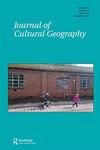Politics and the legacy of street renaming in postcolonial Zimbabwe
IF 0.9
Q3 GEOGRAPHY
引用次数: 0
Abstract
ABSTRACT The announcement by the government of Zimbabwe on 21 November 2019 that a good number of streets were to be renamed motivated this study. We argue that the postcolonial urban landscape in Zimbabwe is increasingly becoming a space of contestation regarding renaming streets. Street renaming in Zimbabwe emphasizes the struggle against coloniality and a search for resilience and purpose among those in power. The leaders seek to use the renaming process to show their contribution to the national struggle and patriotism by honouring some fallen heroes and heroines. However, in a country characterised by hyperinflation, corruption, and fuel and cash shortages, such an emphasis has been deemed (by many ordinary citizens) a cover-up for failure to address glaring challenges. The narrative contributes to the literature on place names as ‘spaces of contestation,’ as street names are used to embody a particular narrative related to the postcolonial government’s history. The renaming provides another ‘soft layer’ of the urban landscape, which is about heritage and less of history.政治与后殖民时期津巴布韦街道更名的遗产
摘要津巴布韦政府于2019年11月21日宣布,大量街道将被重新命名,这激发了这项研究。我们认为,津巴布韦后殖民时代的城市景观正日益成为重新命名街道的争论空间。津巴布韦的街道更名强调了反对殖民主义的斗争,以及当权者对韧性和目标的追求。领导人试图利用更名过程来纪念一些逝去的英雄和女英雄,以表明他们对民族斗争和爱国主义的贡献。然而,在一个以恶性通货膨胀、腐败、燃料和现金短缺为特征的国家,这种强调被(许多普通公民)视为对未能应对明显挑战的掩盖。这种叙事有助于将地名作为“竞争空间”,因为街道名称被用来体现与后殖民政府历史相关的特定叙事。更名提供了城市景观的另一个“软层”,这是关于遗产,而不是历史。
本文章由计算机程序翻译,如有差异,请以英文原文为准。
求助全文
约1分钟内获得全文
求助全文
来源期刊

Journal of Cultural Geography
GEOGRAPHY-
CiteScore
1.70
自引率
22.20%
发文量
15
期刊介绍:
Since 1979 this lively journal has provided an international forum for scholarly research devoted to the spatial aspects of human groups, their activities, associated landscapes, and other cultural phenomena. The journal features high quality articles that are written in an accessible style. With a suite of full-length research articles, interpretive essays, special thematic issues devoted to major topics of interest, and book reviews, the Journal of Cultural Geography remains an indispensable resource both within and beyond the academic community. The journal"s audience includes the well-read general public and specialists from geography, ethnic studies, history, historic preservation.
 求助内容:
求助内容: 应助结果提醒方式:
应助结果提醒方式:


